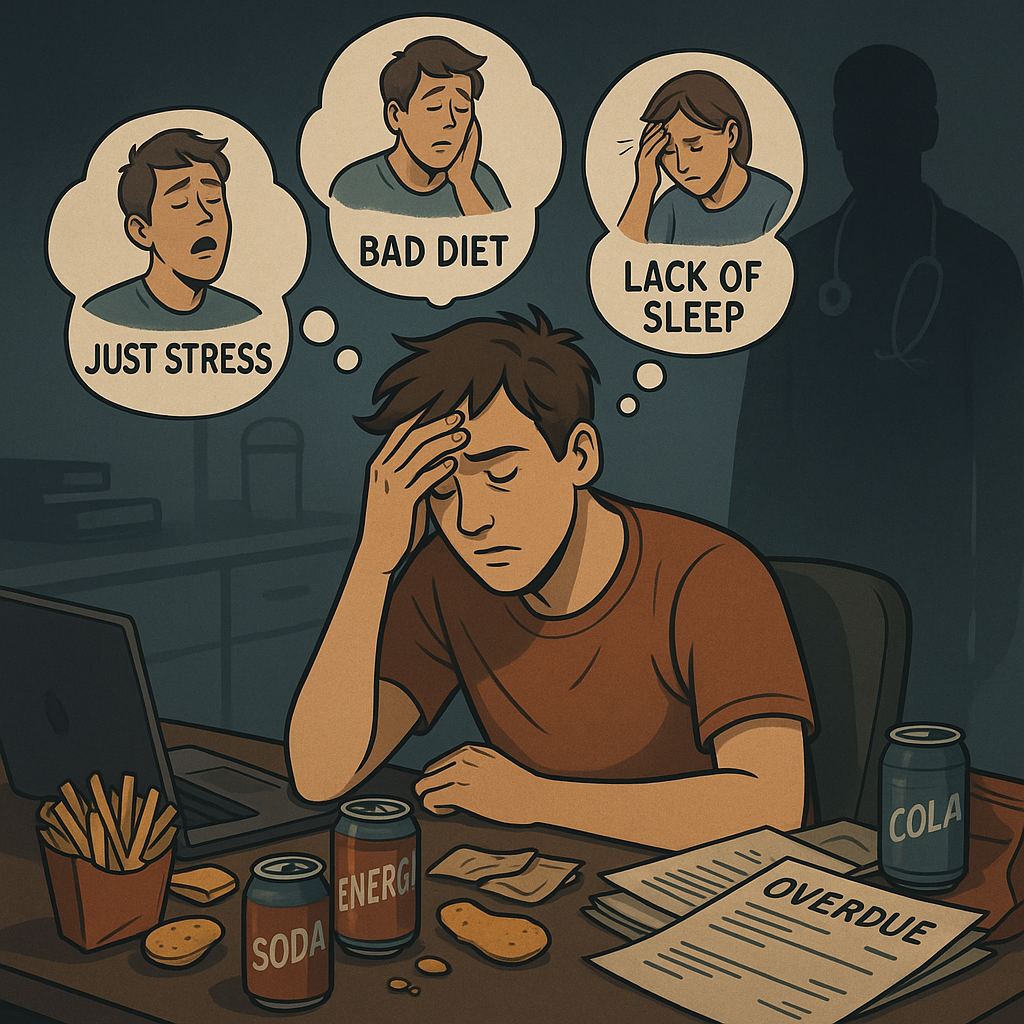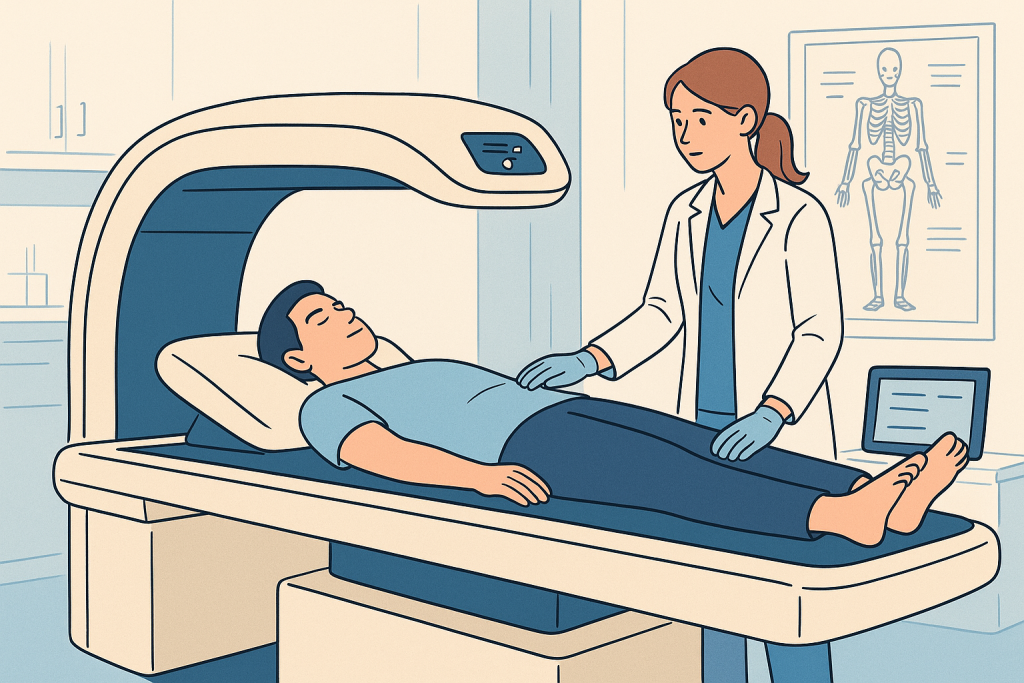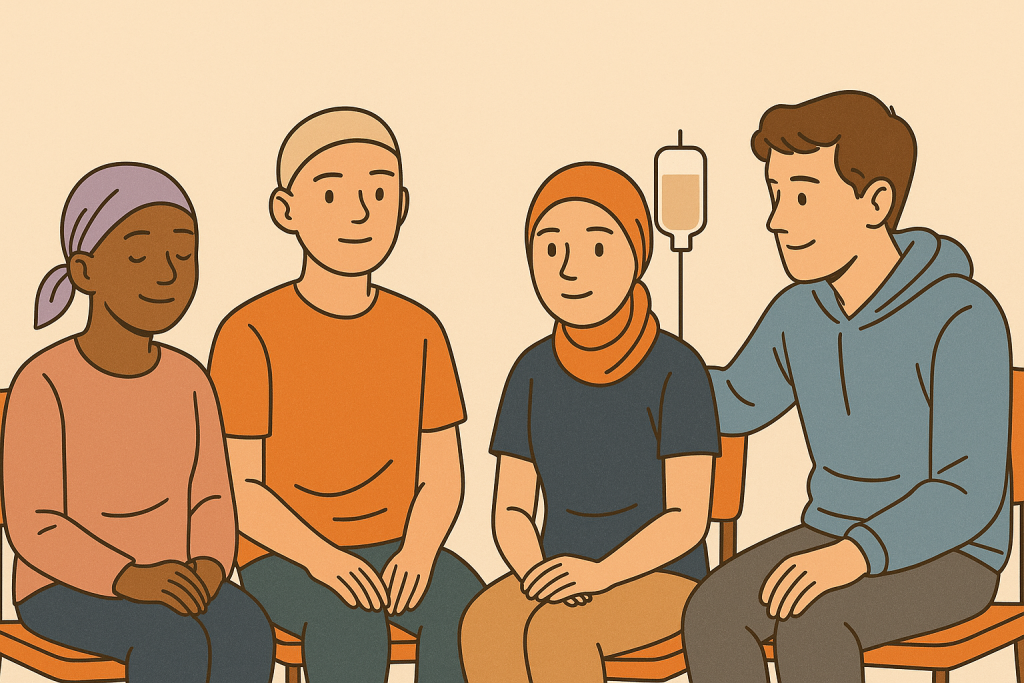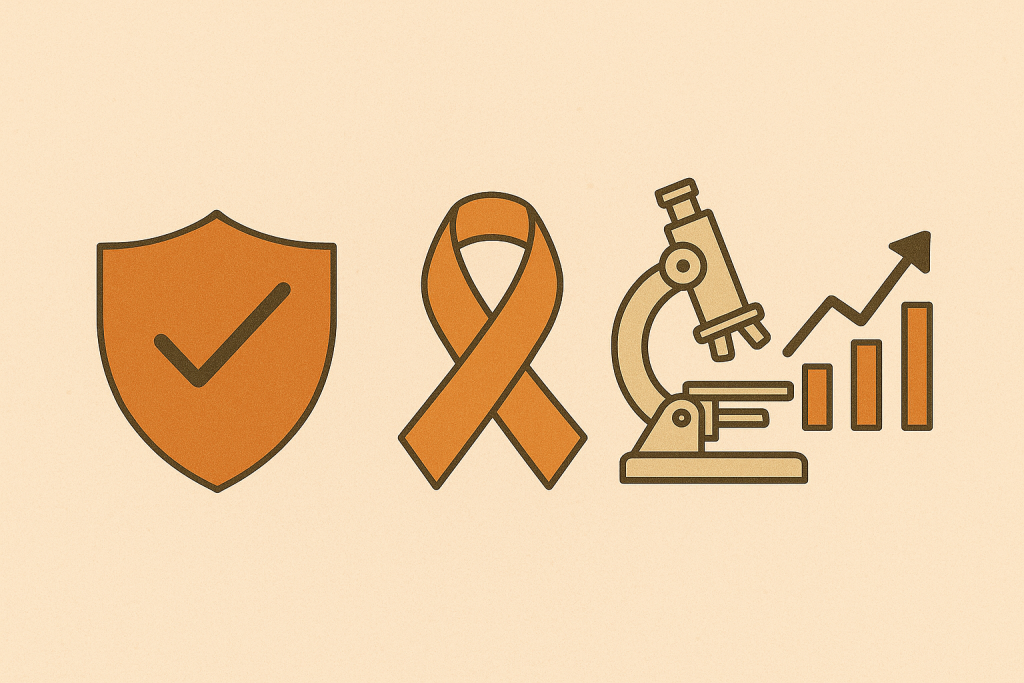The silent threat is growing among young adults—here’s how to spot it early.
I. Colon cancer is rising in millennials. Learn the warning signs, screening tips, and how to lower your risk before it’s too late.
The landscape of colorectal cancer (CRC) is undergoing a perplexing and alarming shift, with a dramatic increase in incidence rates among young adults, including Generation Z, Millennials, and Generation X, typically those in their mid-20s to late 50s. This surge has become a significant medical mystery for clinicians.
I understand you’re looking for quick answers about early-onset colorectal cancer. This term refers to colorectal cancer diagnosed in individuals under the age of 50. Unfortunately, its incidence is rising dramatically among younger adults, including Gen Z, Millennials, and Gen X, and it has even become the leading cause of cancer death in men under 50 and the second in women of the same age. While the exact reasons for this alarming surge remain a perplexing medical mystery, factors like diet, lifestyle, obesity, and alcohol consumption are suspected to be driving influences.
Key symptoms to be aware of include passing blood in the stool (even if you think it’s hemorrhoids), changes in your typical bowel habits, abdominal pain, and unexplained anemia or fatigue. It’s crucial not to dismiss these symptoms, especially if they persist, and to speak with your doctor, as delays in diagnosis are common for younger adults, often leading to more advanced disease which is harder to treat.
For a more comprehensive understanding of the theories behind this rise, specific symptoms to watch out for, current screening guidelines, and what you can do for prevention and support, I encourage you to continue reading for more in-depth information.
Statistics underscore the gravity of this trend:
- Colorectal cancer cases among adults younger than 55 years increased from 11% (1 in 10) in 1995 to 20% (1 in 5) in 2019.
- By 2019, CRC had become the leading cause of cancer deaths in men under 50 and the second among women under 50, behind only breast cancer.
- Projections indicate that the incidence rate for early-onset CRC is expected to double by 2030, with 10.9% of all colon cancers and 22.9% of all rectal cancers diagnosed in young adults, compared to 4.8% and 9.5% respectively in 2010.
This rise in younger populations stands in stark contrast to the declining incidence rates for adults aged 60 and older. This decline in older cohorts is largely attributed to higher rates of recommended CRC screening, such as colonoscopies. The increase in advanced disease and later diagnoses among younger patients makes understanding and addressing early-onset CRC a top public health priority.
II. The “Why?”: Unraveling the Etiology of Early-Onset CRC

The exact reasons behind the surge in early-onset CRC remain a complex conundrum, with no single “smoking gun” identified. Many young patients present as seemingly healthy individuals, with no family history of the disease, and are not obese—a factor long considered a primary risk for CRC. This challenges traditional understandings of risk factors.
A. Suspected Environmental and Lifestyle Drivers: Researchers suspect a combination of factors, particularly environmental and lifestyle changes, are at play.
- Dietary Factors: A “Western diet”—characterized by high intakes of prepackaged foods, refined grains, fried foods, processed meats, and sugary beverages, coupled with low fiber—is widely suspected. This type of diet can agitate gut bacteria, leading to inflammation and accelerated cellular aging. Limiting red and processed meat and increasing consumption of fiber, fruits, and vegetables are common recommendations.
- Obesity and Sedentary Lifestyle: Overweight and obesity are strongly correlated with early-onset CRC, contributing to a chronic inflammatory state within the body. Increased physical activity is consistently encouraged as a preventative measure.
- Alcohol and Tobacco Consumption: Heavy alcohol consumption and smoking are recognized risk factors for CRC.
- Microbiome Disruption: Changes in the gut microbiome due to factors like antibiotic overuse are under investigation as potential contributors to a chronic inflammatory state that could lead to cancer.
- Environmental Factors: Speculations also include microplastics and other unidentified environmental changes that have affected younger generations.
B. Genetic Predisposition vs. Population Trends:
- While approximately 20% to 30% of young CRC patients have an inherited genetic mutation, such as those associated with Lynch Syndrome, genetics alone cannot explain the rapid increase observed over recent decades, as genomes do not change that quickly.
- Researchers are exploring “polygenic” cancers, which are driven by the interaction of mutations in multiple genes, each with a weak effect, in combination with environmental influences.
C. Biological Aging and Birth Cohort Effect:
- Emerging research suggests that young adults diagnosed with cancer may be “aging faster” biologically than their chronological age, a phenomenon linked to diet and lifestyle. Studies have shown that bodies with accelerated biological aging are linked to an increased risk of cancer.
- The “birth cohort effect” proposes that successive generations born after the 1950s have experienced increased incidences of many common cancer types, including CRC, due to accelerated exposure to changing environmental, lifestyle, and other risk factors. This creates a “new biologic window of opportunity for cancer to take hold in younger populations”.

III. Recognizing the Red Flags: Symptoms and Delayed Diagnosis
A critical challenge in early-onset CRC is the delay in diagnosis, often leading to more advanced disease that is harder to treat. This delay is often due to symptoms being attributed to less serious issues by both patients and clinicians.
A. Key Symptoms to Watch For: Individuals, regardless of age, should be vigilant for:
- Rectal bleeding: This includes passing blood in the stool, or blood in the stool or toilet after a bowel movement, and is the most common warning sign for early-onset CRC. Many patients mistake this for hemorrhoids.
- Abdominal pain/cramping: A common indication of the disease.
- Altered bowel habits: Changes in typical bowel patterns (diarrhea, constipation), or changes in stool size, shape (e.g., narrow, thin, ribbon-like), or mucusy stool. These changes should be noted if they last two weeks or more.
- Anemia/Iron deficiency anemia: Especially if unexplained, this can be a subtle symptom due to blood loss from the colon. For young women, chronic anemia should not automatically be attributed solely to menstrual bleeding.
- Unexplained weight loss: Losing weight without trying.
- Low energy or fatigue/Reduced stamina: Can be subtle and often dismissed.
- Change in appetite (e.g., feeling full early).
B. The Challenge of Delayed Diagnosis:
- Younger adults frequently dismiss symptoms as stress, diet, or less serious conditions.
- Clinicians may also dismiss symptoms based on a patient’s young age, leading to multiple doctor visits before a correct diagnosis. A national survey found that over two-thirds of young patients had to see 2 to 3 providers before receiving a correct diagnosis.
- These delays mean that young adults are often diagnosed at more advanced stages (Stage III or IV), which are more challenging to treat and have poorer prognoses.
IV. Screening and Early Detection: The Gold Standard and Emerging Tools

Early detection is paramount for improving outcomes in CRC, as it is one of the few cancers that can be prevented through screening.
A. Current Screening Guidelines:
- The American Cancer Society (ACS) recommends regular CRC screening starting at age 45 for individuals at average risk. This age was lowered from 50 in 2018 by ACS and in 2021 by the U.S. Preventive Services Task Force (USPSTF) and U.S. Multisociety Task Force on Colorectal Cancer.
- Earlier screening (e.g., age 40 or 10 years before the earliest family diagnosis) is recommended for those with a family history or specific risk factors like inflammatory bowel disease (Crohn’s or ulcerative colitis).
- Patients experiencing symptoms should undergo a colonoscopy regardless of age.
B. Colonoscopy: The Gold Standard:
- Colonoscopy is considered the “gold standard” for CRC screening because it allows for both diagnosis and prevention by enabling the detection and removal of precancerous polyps (small bumps on the colon or rectum) before they can develop into cancer.
- Despite its proven effectiveness, less than 60% of eligible candidates undergo recommended screening.
Special: At Home Colorectal Cancer Screening. More HERE
C. Barriers to Screening:
- Lack of awareness about the lowered screening age, perceived hassle of the bowel preparation, and the belief that young, asymptomatic individuals do not need screening contribute to low uptake.
- Limited access to primary care providers, lack of health insurance coverage, and financial costs also present significant barriers, as insurance coverage is often linked to employment.
- The busy lifestyles of young adults, often referred to as the “sandwich generation” who are balancing careers, young children, and caring for aging parents, also make it challenging to prioritize screening.
D. Emerging Screening Tools:
- In July 2024, the US Food and Drug Administration (FDA) approved a blood test called Shield for colon cancer screening. This test, previously out-of-pocket, is now more likely to be covered by insurance.
- While Shield demonstrated effectiveness in identifying 83% of colorectal cancers in a study, its low polyp detection rate (13% compared to 95% for colonoscopy) means it is not intended to replace colonoscopies.
- This test may help boost overall screening rates, especially for individuals under age 45 who are currently too young for routine colonoscopies. However, colonoscopy remains superior for identifying and removing polyps.
- Future research aims to develop more precise, reliable, and potentially self-administered home tests.
V. Unique Challenges and Support for Young Patients

A cancer diagnosis is an emotionally devastating ordeal at any age, but it presents unique and significant challenges for young adults, often interrupting careers and damaging personal finances.
A. Logistical and Psychological Burdens:
- Young adults are often managing demanding careers, raising young children, and sometimes caring for aging parents, making the logistical burden of fitting cancer treatment into their lives incredibly challenging.
- Significant psychological responses to diagnosis and treatment are common, and the process can be more difficult for younger adults.
- Concerns about body image, sexuality, and the impact on long-term relationships are prevalent.
B. Impact on Fertility and Bodily Function:
- Treatment can impact fertility, requiring critical and often rapid decisions about sperm or egg preservation.
- Rectal cancer, which is more common in young adults than colon cancer, often necessitates a temporary or permanent ostomy bag. This can significantly impact bowel and sexual function, as well as body image.
C. The Need for Specialized Support:
- Dedicated programs, such as MD Anderson’s Young-Onset Colorectal Cancer Program and IU Simon Cancer Center’s Center for Young-Onset Colorectal and GI Cancer, provide comprehensive care, psychological support, community, and resources tailored for this unique population.
- These programs help patients navigate practical concerns like financial issues, transportation, family dynamics, and the complex process of reintegrating into normal life post-treatment.
- Support groups and peer connections are vital, allowing patients to compare notes and find solutions together.
VI. The Path Forward: Prevention, Awareness, and Research

Addressing the rising rates of early-onset CRC requires a multi-faceted approach involving individual action, increased awareness among healthcare professionals and the public, and continued research.
A. Empowering Patients: Be Your Own Advocate:
- Individuals must know their own bodies and be vigilant for any persistent or unusual symptoms, even if subtle.
- Do not be shy about discussing bowel habits with your doctor.
- Be persistent in seeking answers; if symptoms are dismissed or not improving, do not hesitate to get a second or even third opinion.
- Understand your family history of cancer and discuss it thoroughly with your doctor, tracing three generations if possible.
B. Educating Healthcare Professionals and the Public:
- Surgeons and medical societies, such as the American College of Surgeons (ACS) and American Society of Colon and Rectal Surgeons, have a crucial role in public health campaigns to educate about screening guidelines and red flags.
- Clinicians must be aware that young patients can indeed have CRC and should not dismiss symptoms based on age alone.
- Direct, one-on-one conversations and sharing real-life patient stories among medical professionals can help effect change in clinical practice.
C. Advancing Prevention and Treatment Through Research:
- Multidisciplinary research, including studies on diverse populations (e.g., Alaska Native people, who have high rates of CRC), is essential to uncover new mechanisms and identify high-risk young adults.
- Continued focus on the interplay between genetics, environment, and lifestyle factors is crucial.
- The development of risk calculators could offer more precise individual risk assessment by combining genetic data with lifestyle factors.
- Exploration of “chemoprevention”—developing anti-cancer drugs based on genetic predisposition clues—and more targeted screening approaches based on genetic predisposition are ongoing avenues of research.
- Funding for cancer research is vital to advance treatment options and ultimately contribute to ending the disease. For example, genomic testing of tumors for stage IV CRC is crucial for targeted treatments, and less than two-thirds of U.S. patients receive it currently.
VII. Conclusion: A Call to Action for Collective Health
The rising incidence of early-onset colorectal cancer presents a significant public health challenge that demands collective attention from individuals, healthcare providers, and researchers. While challenges persist, vigilance for symptoms, early symptom recognition, adherence to screening guidelines (now starting at age 45), and a commitment to healthy lifestyles offer hope for prevention and improved outcomes. By fostering greater awareness, eliminating diagnostic delays, and investing in ongoing research, it is possible to mitigate the impact of this troubling trend and save lives.
FAQ
1. Why is there a concerning rise in colorectal cancer (CRC) among younger adults, and what are the primary theories behind this trend? Colorectal cancer rates are steadily increasing globally in wealthier, higher-income countries, not just the United States. This trend has been observed for years, with a notable surge in young adults aged mid-20s to late 50s (Generation Z, Millennials, and Generation X). The increase is most stark among those aged 20-29. According to a 2023 American Cancer Society (ACS) report, cases among adults younger than 55 increased from 11% (1 in 10) in 1995 to 20% (1 in 5) in 2019. The incidence rate is expected to double by 2030, with 10.9% of all colon cancers and 22.9% of all rectal cancers projected to be diagnosed in young adults. Colorectal cancer has also risen to become the leading cause of cancer deaths in men under 50 and the second among women under 50 (after breast cancer).
While the exact reasons remain a “perplexing medical mystery” for clinicians, researchers are investing millions of dollars into understanding this phenomenon. Several hypotheses and factors are suspected:
- Birth Cohort Effect Each successive generation born during the second half of the 20th century has shown increased incidences of many common cancer types compared to preceding generations, suggesting that individuals born in later generations may have a higher risk of early-onset cancer due to accumulated exposures over their lifetime.
- Diet and Lifestyle Significant changes in diet are primary suspects. This includes increased consumption of ultra-processed foods, processed meats, and sugary beverages, coupled with a decrease in fiber intake. A Western diet specifically, consisting of high intakes of prepackaged foods, refined grains, and fried foods, can agitate gastrointestinal bacteria, leading to inflammation and accelerated cellular aging.
- Gut Microbiome Disruption Higher rates of antibiotic use in childhood are thought to disrupt the gut microbiome—the healthy microorganisms in our intestines—potentially increasing risk. An consistently unhealthy diet can also disrupt the gut microbiome, which is likened to “releasing the brake,” allowing tumors to grow. One study also implicated a DNA-damaging toxin produced by certain E. coli strains as a key driver.
- Obesity and Sedentary Lifestyles Rising rates of obesity and more sedentary jobs and lifestyles are considered contributing factors due to their association with inflammatory states in the body. Obesity is highly heritable (30-60% genetic) and is occurring at earlier ages.
- Alcohol and Smoking Heavy alcohol consumption and smoking (including e-cigarettes) are also identified as significant, modifiable risk factors.
- Genetics (Limited Role) While inherited genetic conditions like Lynch Syndrome can cause some early-onset cases (around 20-30%), genetic factors alone do not explain the rapid rise in incidence over recent decades. Genes do not change quickly enough to account for such a swift increase. However, an expanding body of research suggests examining biological or epigenetic aging may improve prevention and early detection, as bodies with accelerated aging were linked to an increased cancer risk.
It is crucial to remember that this rise is likely due to a combination of factors, not a single cause, and individuals are not to blame for their diagnosis.
2. What are the common misconceptions about early-onset colorectal cancer? Several misconceptions contribute to delayed diagnoses and treatment in younger individuals:
- It’s an “old person’s disease” or “only affects men.” CRC is a major issue for young men and women alike, despite the common belief that it primarily affects older men.
- It’s always linked to family history or inherited conditions. Most young patients diagnosed with CRC do not have a family history of the disease and are often otherwise healthy, active individuals with no underlying risk factors.
- There will always be noticeable symptoms. In many cases, the primary “symptom” is no symptoms at all. When symptoms do appear, they are often subtle and easily dismissed by both patients and medical professionals as less serious conditions like hemorrhoids, menstrual issues, or general fatigue.
- It’s caused by poor lifestyle choices. Many young people diagnosed with CRC lead healthy lifestyles, pay attention to diet, and exercise regularly. It’s often not attributed to something they “must have done to their bodies”. The rise is due to complex factors beyond individual blame.
3. What are the key symptoms of colorectal cancer that young adults should be aware of, and why are they often overlooked? Young adults should be vigilant about potential CRC symptoms, though some patients may have no symptoms at all. The most common warning signs include:
- Rectal bleeding or blood in the stool or toilet after a bowel movement. It’s crucial to get this checked, even if assumed to be hemorrhoids, especially if it doesn’t go away.
- Changes in bowel movements: This includes persistent loose stool (diarrhea) or constipation (less than three bowel movements a week), particularly if lasting two weeks or more. Other changes might include more cramping, bloating, or mucusy stool. Dark or black stools can indicate bleeding. Narrow, thin, or ribbon-like stools may signal an obstruction. A new need for straining to evacuate stool can also be a symptom.
- Abdominal pain.
- Anemia. This can lead to low energy or tiredness. In young women, chronic anemia might be wrongly attributed to menstrual bleeding. For males with iron deficiency anemia without other clear blood loss, it can be an early sign of colon cancer.
- Unexplained weight loss.
- Feeling “full” early or a change in appetite.
These symptoms are often overlooked in younger individuals because they can mimic other common, less serious gastrointestinal issues like irritable bowel syndrome (IBS), hemorrhoids, or even stress. Young people may attribute these symptoms to their diet or stress, delaying medical attention. Medical professionals also might initially dismiss these symptoms in younger patients due to the prevailing misconception that CRC is an older person’s disease, leading to delays in appropriate diagnostic tests. Delays in diagnosis are common—up to 6 months from initial symptom presentation. This often means younger adults are diagnosed with more advanced disease, which is typically more challenging to treat. Many patients have to see 2 to 3 providers before arriving at the correct diagnosis.
4. What are the current colorectal cancer screening guidelines for average-risk individuals, and how does family history influence these recommendations?
- Average Risk: The American Cancer Society and other task forces recommend regular colorectal cancer screening starting at age 45 for individuals at average risk. This is a recent change, as the recommended starting age was previously 50, reflecting the increasing incidence of early-onset CRC. Screening can be done through a stool-based test or a visual test (colonoscopy).
- Family History: Family history plays a crucial role in individualized screening. If you have a family history of colorectal cancer or polyps, your doctor may recommend starting colonoscopy screening earlier, typically at age 40 or 10 years before the age when your youngest family member was diagnosed, whichever comes first. For example, if a close relative was diagnosed at 48, you might be advised to start screening at 38.
- Other Higher-Risk Groups: Black men and women are advised to start screening at age 45 due to their higher risk. Individuals with underlying conditions like ulcerative colitis or inherited cancer syndromes also need special consideration for screening.
- Current Screening Challenges: Despite recommendations, less than 60% of eligible candidates have had their recommended screening. Barriers include lack of a primary care provider, lack of health insurance coverage for screening costs, and younger adults being too busy.
5. Why is colonoscopy considered the “gold standard” for detecting colorectal cancer, and what other screening options are available?
- Gold Standard: Colonoscopy is considered the “gold standard” of screening because it offers the unique opportunity to both diagnose and prevent the disease. During a colonoscopy, a doctor uses a flexible tube with a camera to examine the entire colon directly. This allows for the immediate visualization and removal of any polyps (small growths) that may be precancerous, effectively preventing many cancers from developing. This preventative aspect is a primary reason for the overall decrease in colorectal cancer rates among older adults who are more likely to get screened.
- Other Screening Options:
- Stool-based tests: These tests can help detect blood or abnormal DNA in the stool, which may indicate the presence of cancer or polyps. However, if these tests return abnormal results, a colonoscopy is typically recommended for further investigation and potential polyp removal.
- Blood tests: In July 2024, the US Food and Drug Administration (FDA) approved a blood test called Shield for colon cancer screening. This test is most effective at identifying late-stage cancers (finding 83% of colorectal cancers in a study) but only 13% of polyps, whereas colonoscopies find 95% of polyps. If a blood test is positive, a colonoscopy is required. If negative, patients might miss the opportunity to remove precancerous polyps. Despite limitations, this new test could boost overall screening rates, especially for individuals younger than 45 who are too young for routine colonoscopies.
- Future and Considerations: The development of more precise and reliable noninvasive detection tools, particularly self-administered tests, may be on the horizon. Until then, colonoscopy remains superior for comprehensive detection. However, the incidence of early-onset CRC is still too low to justify routine colonoscopies for all young people.
6. What unique challenges do young adults face when diagnosed with colorectal cancer, and what support systems are available? A colorectal cancer diagnosis at a young age presents a unique set of challenges that significantly impact a person’s life:
- Delayed Diagnosis Symptoms are often dismissed by both patients and providers, leading to diagnoses at later, more advanced stages (Stage 3 or 4 are common).
- Psychological and Emotional Burden A cancer diagnosis is emotionally devastating, often described as an “intruder” in one’s life. Younger patients may experience grief over the loss of their former lives, independence, and future plans. They may also feel pressure to “not look sick” despite internal struggles.
- Impact on Life Stages A diagnosis can severely interrupt careers and damage personal finances. Young adults are often busy raising children, managing friendships, and caring for older parents, making it challenging to fit demanding cancer treatments into their lives.
- Fertility Concerns Young patients may need to make quick, critical decisions about fertility preservation (sperm or egg banking) before treatment begins, as treatment can impact fertility.
- Treatment Side Effects Rectal cancer, more common in young adults, often requires more involved treatment including radiation, chemotherapy, and potentially a temporary or permanent ostomy bag. These can have significant long-term impacts on bowel function, sexual function, and body image. Neuropathy, a common side effect of chemotherapy, can also persist for years after treatment.
- Financial Strain Younger individuals often face higher deductible health plans, student loan debt, and mortgages, making the unexpected medical debt from cancer treatment an exhausting burden.
- Loss of Independence Patients may need to rely on others for help with personal care, family responsibilities, and household management.
To address these unique challenges, various support systems are available:
- Specialized Programs: Centers like MD Anderson Cancer Center and IU Simon Cancer Center have dedicated programs for young-onset colorectal cancer, providing personalized and comprehensive care, including dedicated attention to fertility, sexual function, and long-term bowel function.
- Support Services: Clinical social workers and patient navigators assist with financial concerns, transportation, family issues, and provide social and psychological counseling.
- Community Support: These programs foster a community where patients can connect, compare notes, and potentially find solutions for each other, helping them feel less alone. National organizations are also emerging to address this gap.
- Genetic Counseling and Testing: This is crucial for tailoring treatment and providing vital information for family members to monitor their own cancer risks.
7. What lifestyle modifications can help reduce the risk of colorectal cancer, and why is a holistic approach important? While the exact causes of the rise in early-onset colorectal cancer are still being investigated, certain lifestyle modifications, largely derived from studies on older patient populations, are generally recommended to reduce the risk of CRC:
- Quit Smoking: This includes e-cigarettes, as smoking significantly increases the risk not only for lung cancers but also for colorectal and other cancers.
- Drink Responsibly: The American Cancer Society advises no more than two alcoholic drinks a day for men and one for women.
- Increase Physical Activity: A sedentary lifestyle is linked to a higher risk of CRC. Being more active, aiming for at least 30 minutes of moderate activity daily, can lower risk.
- Maintain a Healthy Weight: Being overweight or obese increases the risk of both developing and dying from colorectal cancer, especially colon cancer.
- Consume Adequate Fiber: Aim for 25 grams of fiber per day by incorporating more fresh fruits, vegetables, whole grains, beans, and legumes into your diet. The typical American diet is often low in fiber.
- Limit Ultra-Processed Foods and Sugary Beverages: These items are thought to contribute to inflammation and gut microbiome disruption.
- Avoid Unnecessary Antibiotics: Antibiotics can disrupt the healthy microorganisms in the gut. Only take antibiotics when truly necessary for bacterial infections, as it can take months for the microbiome to reset.
It’s important to understand that no single lifestyle change is a guaranteed preventative measure. Instead, a holistic approach that combines these recommendations is crucial. Research indicates that the rise in early-onset CRC is likely due to a complex interplay of various factors, rather than a single cause. Therefore, individuals should focus on adopting a generally healthy lifestyle rather than blaming themselves for a diagnosis.
8. What is the importance of advocating for oneself and for increased awareness among healthcare professionals regarding early-onset colorectal cancer? Advocating for oneself and raising awareness among healthcare professionals is critically important given the rising rates of early-onset colorectal cancer and the tendency for symptoms to be dismissed in younger individuals.
- For Patients and Individuals:
- Know Your Body and Be Persistent: You are your best advocate. Pay attention to any new or unusual changes in your body, and don’t be shy about discussing bowel habits or other “embarrassing” symptoms with your doctor. If your symptoms persist for more than a couple of weeks, or if you feel something is wrong despite a doctor’s reassurances, seek a second or even third opinion. Ask your clinician for a clear plan on how they will continue to investigate your symptoms.
- Recognize Red Flag Symptoms: Be especially vigilant for “red flag” symptoms like unintentional weight loss, persistent changes in bowel movements, or iron deficiency (especially in males or females without clear menstrual causes), as these can be early signs of CRC.
- Understand Screening Guidelines: Be aware that the average-risk screening age has changed to 45. If you meet this criterion or have a family history, advocate for appropriate screening.
- Prepare for Appointments: Make a list of questions and consider bringing a friend or family member for additional support and note-taking.
- For Healthcare Professionals:
- Increased Education: There is a significant need to educate medical students, physicians (especially in internal medicine, family medicine, and OB/GYN), nurse practitioners, and physician assistants that young people can and do get colorectal cancer.
- Broaden Differential Diagnoses: Clinicians need to expand their differential diagnoses to include CRC for younger patients presenting with vague abdominal pain, bowel changes, or anemia, even if other more common conditions seem to fit. Don’t rule out cancer based on a patient’s age alone.
- Thorough Evaluation: Despite pressures to see more patients, taking the time to listen attentively and thoroughly evaluate persistent symptoms in young individuals is paramount.
- Genetic Testing Awareness: Ensure all Stage 4 colorectal cancer patients receive genomic testing of their tumors, as this can guide highly effective targeted treatments. Universal genetic counseling and testing for all CRC patients diagnosed under age 50 is recommended to avoid missing hereditary diagnoses.
- Community Awareness Campaigns: Surgeons and medical societies like the American College of Surgeons have a powerful platform to influence public health. They should be “front and center” in marketing campaigns to educate the public on screening guidelines and the importance of symptom awareness. Sharing real-life patient stories with colleagues can help effect change in clinical practice.
Ultimately, preventing tragic outcomes requires a concerted effort from both patients who advocate for their health and a medical community that is well-informed and vigilant about early-onset colorectal cancer.
9. What is the prognosis for younger colorectal cancer patients, and what are the general treatment approaches?
- Prognosis: The prognosis for colorectal cancer heavily depends on the cancer’s stage at diagnosis; the earlier the stage of the tumor, the easier it is to treat and the better the outcome. Unfortunately, younger patients are more likely to be diagnosed at later, more advanced stages (Stage 3 or 4) due to delays in diagnosis.
- General figures from the American Cancer Society show that for patients under age 50:
- The five-year survival rate for localized colorectal cancer (Stage I or II) is 94%.
- The five-year survival rate drops to 80% for cancer that has spread to the lymph nodes (regional spread).
- For patients with Stage IV (metastatic) colorectal cancer, the five-year survival rate is 21%. The rate at which people under age 50 are dying from colorectal cancer has increased, which can suggest a more aggressive disease.
- General figures from the American Cancer Society show that for patients under age 50:
- Treatment Approaches: While each patient’s case is unique and requires personalized treatment, general approaches include:
- Surgery: Most patients will need surgery to remove the affected part of the colon. For rectal cancer, which is more common in young adults, surgery is more highly specialized and intricate due to the tumor’s location and the importance of preserving bowel movement control.
- Chemotherapy: Some patients may require additional chemotherapy after surgery.
- Radiation Therapy: Patients with rectal cancer may also need radiation therapy, often combined with chemotherapy and surgery, due to the higher likelihood of local recurrence in the rectum.
- Ostomy: Some patients, especially with rectal cancer, may need a temporary or permanent ostomy bag, which involves surgically creating a hole in the digestive tract to allow waste to pass into a disposable bag. While a significant lifestyle change, patients can learn to adapt and maintain their normal activities.
- Advanced Disease Treatment: For Stage IV colorectal cancer, significant advancements have been made. If the cancer has spread to a single organ (like the liver or lungs), surgical removal of metastases might be possible, offering a potential cure. Genomic testing of the tumor is crucial for all Stage IV patients (though less than two-thirds currently receive it), as it guides highly effective targeted treatments based on specific genetic mutations (e.g., BFF, HER2, KRAS, or microsatellite instability). Immunotherapy, for example, has “completely revolutionized” care for patients with Lynch syndrome, often leading to cures.
- Advancements and Research: The number of available treatments has dramatically increased in recent years. Continued funding for cancer research is crucial to further advance treatments and prevention strategies, including potential “chemopreventive” drugs based on genetic predisposition studies.



